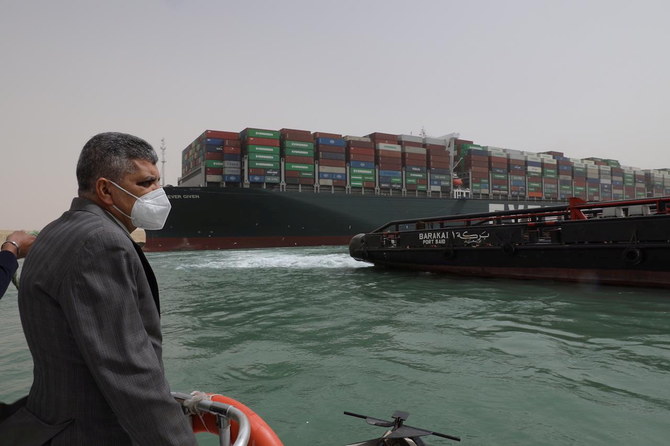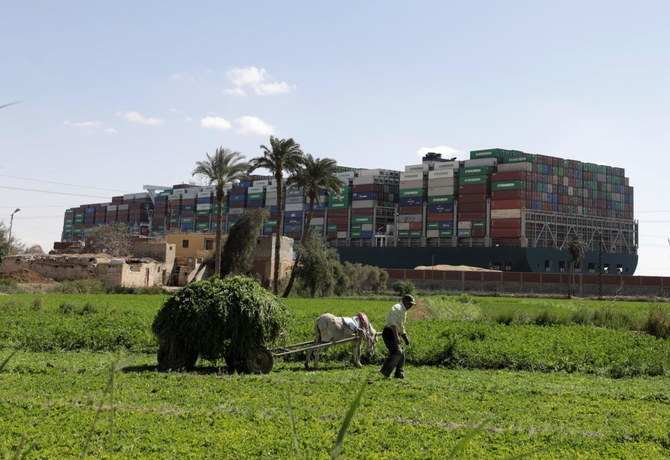CAIRO: Egypt’s Suez Canal Authority chief said on Saturday that officials could not lay out a set timetable for when Panamanian container ship, The Ever Given, will be dislodged.
Lt. Gen. Osama Rabei said that the ship broke the canal’s bank and can only be moved using excavators.
The ship has been wedged diagonally across the canal since Tuesday, blocking one of the world’s most vital waterways in both directions.
In a press conference on Saturday in Suez, Rabei said strong winds “were not the main reason” for the grounding of the ship, but that technical or human errors could have led to the incident.
A dredging operation could free the ship without having to resort to removing its cargo, he added.
Outlining Egyptian efforts with tugboats and excavators to free the bow and propellers of the ship, he said that more than 300 vessels are now waiting at either end of the canal. Rabei said that the dredging process is important in removing the trapped vessel.
He added that two operations are being conducted to end the crisis.
He said it was possible that the ship could be moved “today or tomorrow, depending on its responsiveness to the tides.”
The results of the first day’s work were “not good” and the ship “could not move because of its huge size,” Rabei warned.
He said that only 12 ships were waiting to cross the canal the day of the incident, but an alternative plan was put in place to stop them in Timsah Lake and Bitter Lake.
Rabei said that the authority has received many proposals to solve the problem that are being examined.
“We are working with soil, with rocks and there are tidal waves. We are also dealing with the size of the ship, its great height and the number of containers on board,” he said.
“Investigations will take place after the flotation process is complete. Our concern now is to move the ship,” he added.
Rabei said that the ship had previously crossed through the canal without issue.
Figures from last year show that the canal handles a daily income of $12 to $13 million. The grounded vessel is blocking about $9.6 billion worth of cargo business each day between Asia and Europe, according to Lloyd’s List data.
Rabei said that the canal “will not lose customers” and that the authority will provide incentives to those who have been affected by the incident.
He said that the incident has not resulted in any injuries, deaths or oil pollution.



















